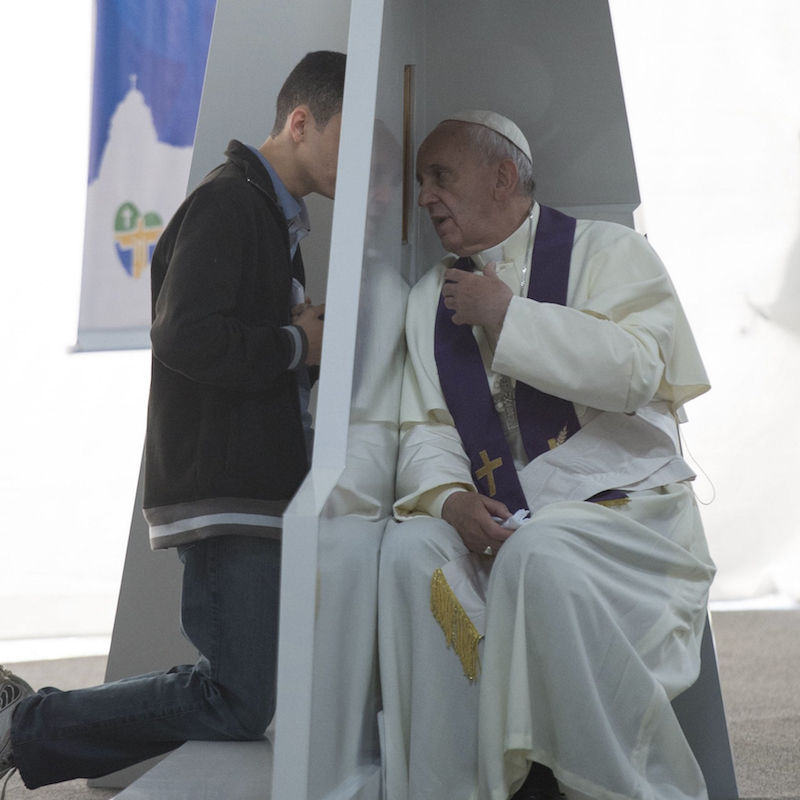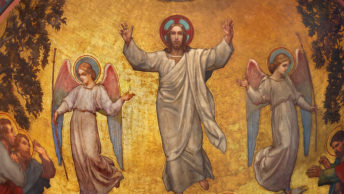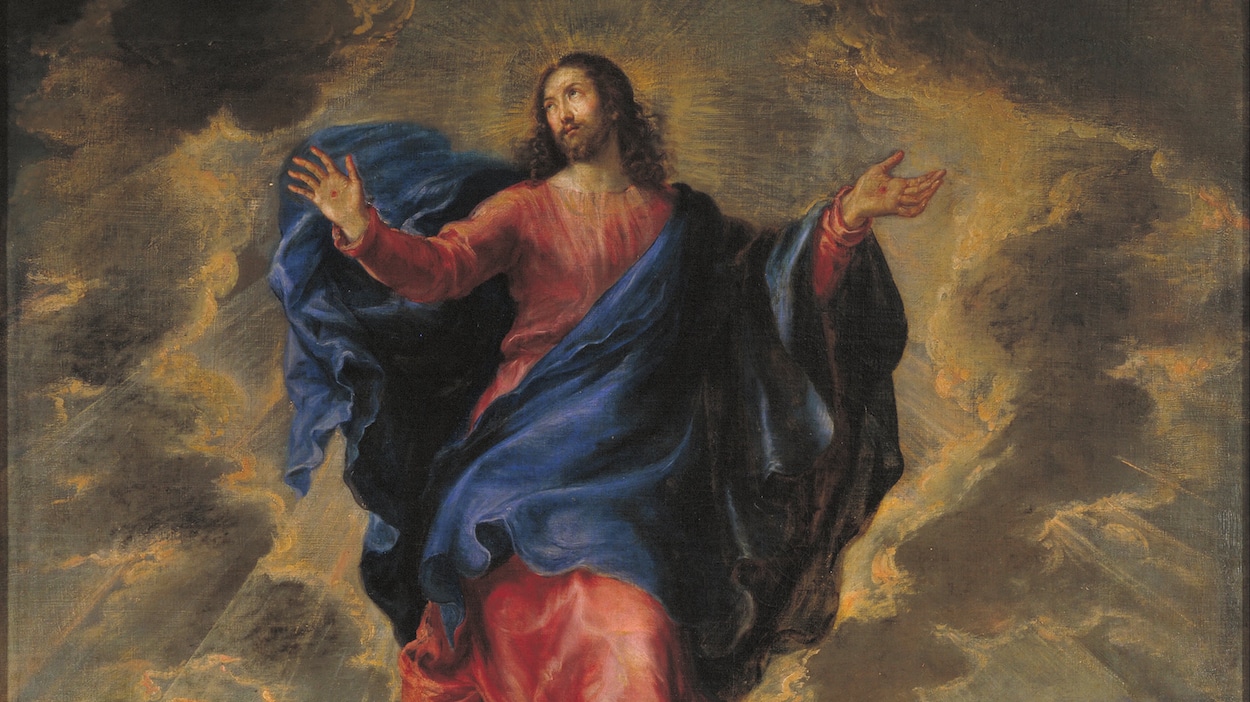Outside Jerusalem, on the Mount of Olives, is the Mosque of the Ascension—a 900-year-old Crusader church built on the site at which Jesus is said to have ascended into Heaven. (The church was later turned into a mosque by the Moslems, who honored Jesus as a prophet, even as they denied His divinity.) Embedded in the floor of the building is the original rock; it supposedly has one of Jesus’ “footprints” from the moment of the Ascension (with the other footprint being removed and preserved in a mosque inside the city). While on a pilgrimage there over thirty years ago, I looked closely at the rock, but no image of a footprint was visible; it takes a very active imagination to see such a thing. The story of Our Lord’s footprint is probably just a pious embellishment of Scripture. Sometimes we look for things that aren’t there, just as the disciples kept staring into an empty sky after Jesus ascended into Heaven. Though the illusions of earth may be comforting or tempting, we must instead try to see through the eyes of God.
Sometimes we look for meaning, happiness, or freedom in earthly things, such as money, power, or pleasure, but these things are all only empty illusions. Sometimes we do look for God, but only “up there” in the sky, and not down here in our hearts, our neighbors, and our daily lives. Sometimes we do find God, but then we fail to share this faith; we take comfort in the illusion, “It’s not up to me to do the work of the Church,” or “I can’t do anything, so I won’t get involved.” We are called to find God for ourselves and then share Him with others—and we can do this. The Apostles made a difference, in spite of their weaknesses and fears; with God’s grace, this can also be true of us.
Most people are very good at ignoring things they find challenging and uncomfortable, and at seeing or imagining pleasant or consoling things that aren’t actually real or true. This is one of the effects of original sin: we have a hard time recognizing and accepting reality, especially when it requires repentance, growth, and change on our part; we prefer to cling to our illusions, even when they’re spiritually dangerous. This is particularly true of American society today. We are aborting our future, with over a million lives snuffed out in the womb every year. We are moving toward a widespread acceptance of euthanasia, even involuntary euthanasia, in which someone else decides a certain life is no longer worth living. We are starting to ration healthcare to the elderly and infirm. We are seeing growing restrictions on free speech and freedom of religion. We as a nation are abandoning our founding principles, and betraying those ideals for which so many earlier Americans made heroic sacrifices, including their very lives. We as a country are turning away from God and forfeiting His blessings and protection—but most Americans don’t want to hear or think about these hard realities, let alone do something to change them. As a society, we prefer our illusions: everything’s all right, and everything will continue on tomorrow just as it is today. We like to pretend we’re still a noble people deserving of God’s blessings, when in fact the reality is becoming quite different.
We as Catholics are just as guilty of wishful thinking as anyone else. Over seventy percent of us rarely come to Mass, yet we still consider ourselves “good Catholics.” Over fifty percent of us doubt the Church’s teaching that the Eucharist truly is the Body and Blood of Christ, but at Mass—especially at Christmas and Easter—almost everyone receives Holy Communion anyhow. We as Catholics are just as capable of sinning as anyone else, but there are very few confessions. Indeed, Reconciliation might be called “the forgotten sacrament.” In an average-sized parish, for example, if everyone were to go to confession just once a year, there would be close to 100 confessions a week. Instead, the average is about 12-15. None of us is so free of sin and filled with virtue that we can’t benefit from this sacrament. Moreover, in light of the ways our society is rapidly changing for the worse, I believe the days are soon coming when it will no longer be possible to practice our faith in a safe, comfortable, routine way. There will be a price demanded of us, and we’ll be confronted with a choice: either we’ll be heroic Catholics, firmly committed to putting Jesus first in our lives, no matter what the cost; or we’ll become fallen-away Catholics, unable to withstand this world’s pressures, temptations, and persecutions.
Making a good confession is an important part of being prepared not only for possible coming challenges, but also for the day of our own death, which can come suddenly and unexpectedly to any of us. In my own parish, I would happily schedule more weekly confessions times should they become necessary because of numbers. For now, I’ll point out that Friday, May 13, is the 99th anniversary of Our Lady’s first apparition at Fatima, during which she called upon us to do penance and pray for the conversion of sinners. This message is far more urgent now than it was a century ago, and the Sacrament of Reconciliation is an essential part of this effort.
We can easily look at ourselves and see good people who don’t need confession, but that’s often an illusion—just like the supposed footprint of Jesus on a rock outside Jerusalem. We can stand around doing nothing, just as the apostles kept staring into the sky after Jesus ascended—but that’s not what God wants of us. In the Gospel Our Lord reminded His disciples that the forgiveness of sins was a central part of His mission, and that they were expected to bear witness to this truth. This responsibility also falls upon us. We must seek God’s mercy for ourselves, particularly through confession, and then share it with others, especially by our example of faith and our willingness to forgive. This witness is essential if we are to help our nation rise to the challenge, turn back to God, and once again become worthy of His blessings and protection.








